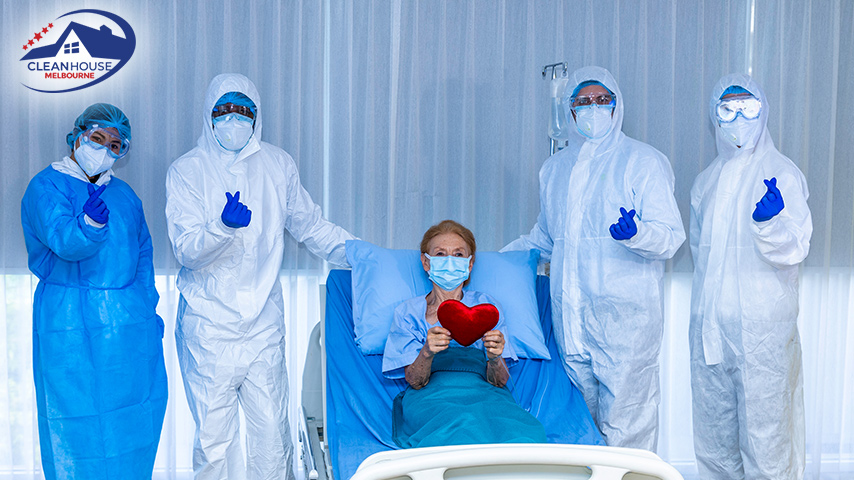Care home settings provide service mainly for the elderly population with varieties of medical requirements. Care homes are significant in serving as people’s homes and health-wise institutions. The risk of dying from COVID-19 increases with age, and the majority of the deaths reported are in those older than age 60 based on the available data. According to care home residents’ studies, respiratory tract infections (RTIs) outbreaks are much more common than gastrointestinal. It spread rapidly among the population, with few locals being seriously affected by influenza and other RTIs.
The majority of such settings in the fight against COVID-19 have limited visitations and also performed deep cleaning of the surroundings to reduce the risk of exposure to their residents.
This article assesses the available preventive measures to reduce the risk of exposure to the virus among residents and workers staying in the care home settings. Older adults are more exposed to the infection because of their weakened immune systems as well as chronic conditions.
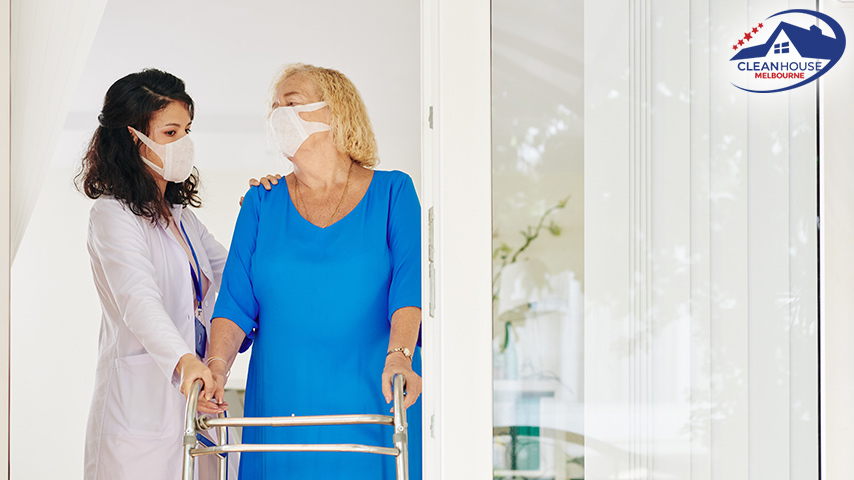
This is why top-notch hygiene and cleanliness are required by aged care centers to minimize the risk of residents’ exposure to COVID-19. Professional cleaners can keep the care home setting in the cleaned condition when a thorough and formalized cleaning process and guideline are followed.
Why should you contact a Certified Cleaning Company for COVID-19 Deep Cleaning for Aged Care?
One of the tougher challenges elderly citizens faced is how to keep their space clean and attractive. Your elderly loved ones don’t have to handle the tough chores themselves as Clean House Melbourne are available. Cleaning tasks such as mopping, dusting, scrubbing toilets, and vacuuming that they can easily handle a long time ago can now become physically difficult or sometimes dangerous, as it can cause bodily injuries, falls, or accidents. Of course, some senior citizens relocate to assisted living centers just because they cannot meet up with the cleaning task as it has turned hard and dangerous to their health.
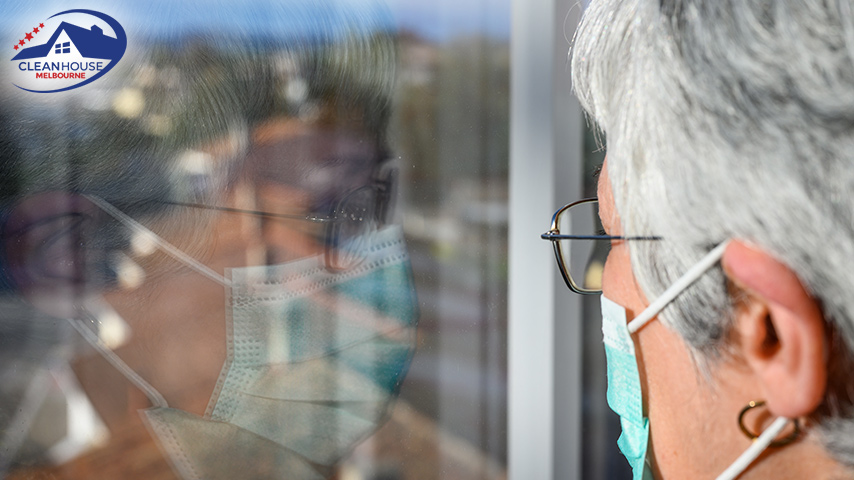
Hiring the Right Cleaning Service for COVID Deep Cleaning
A professional cleaning service makes sure that you and your loved ones live in a safe, healthy, and tidy home. Most seniors who are getting older find it hard to complete most of their daily tasks that they once were able to do. Most people choose to hire a companion to help their loved ones with their personal and household needs. With Clean House Melbourne, one can get average housekeeping as well as Age Care COVID deep cleaning and disinfection, based on your needs. Changing linens, laundry, vacuuming, and surface cleaning in areas like kitchen counters, bathroom surfaces, and tables are all examples of light housekeeping.

What are the inclusions in our Services?
Sanitizing, scrubbing, and disinfecting places like the kitchen (cupboards, appliances), bathroom, and other required areas are all included in our deep cleaning services. This service is recommended for seniors who can’t perform a cleaning and disinfection to this extent because of restriction in mobility, which is a result of the old aging process, a recent accident that caused the disability, or a fall.
Deep cleaning and disinfection are very important for people with weakened immune systems, allergies, or other health conditions that make them more susceptible to COVID-19 and other infections and toxins. This decision is very important but below is how we can be of help:
Cleaning: You can get light housekeeping services from our service and also ensure proper disinfection of surfaces to keep elderly ones healthy. Our workers observe the CDC-recommended hygiene procedures, as well as thorough and often hand washing using soap and water, sanitizing hands with gels (70% alcohol or more), using disinfectant wipes often to wipe down surfaces and adequate coughing and sneezing.
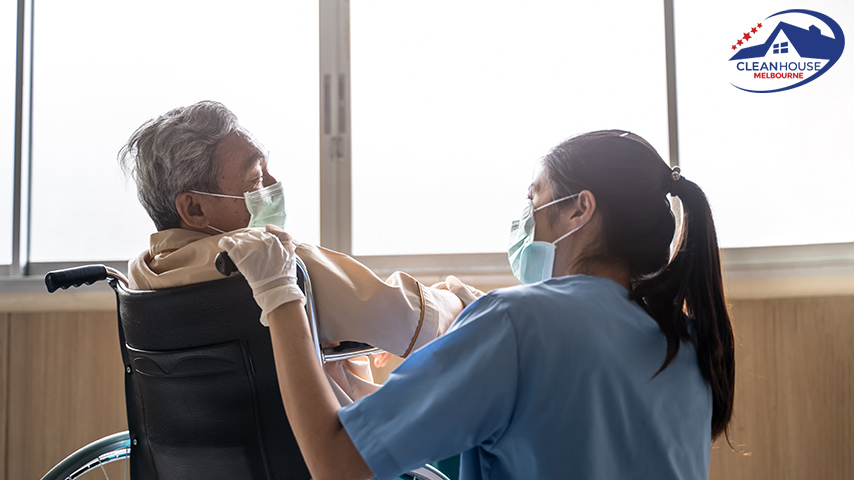 Disinfecting: Vigorous surface cleaning, which includes floors, is very important to environmental hygiene in senior care facilities. Surfaces can easily become home for infectious germs, which can further affect other frequently touched objects. Be sure to disinfect frequently touched and high-traffic places like:
Disinfecting: Vigorous surface cleaning, which includes floors, is very important to environmental hygiene in senior care facilities. Surfaces can easily become home for infectious germs, which can further affect other frequently touched objects. Be sure to disinfect frequently touched and high-traffic places like:
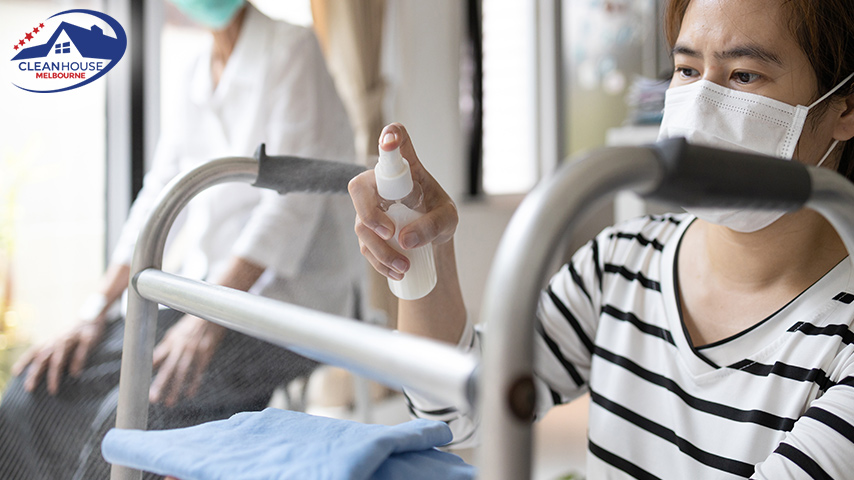
- The entire entries and Exits
- All the light switches and plugs
- Hallways and walls
- Skirting boards
- All flat surfaces
- All the mirrors
- The whole doors and door handles
- The entire drawers and their handles
- All chairs and tables
- Rubbish bins
- Couches and coffee tables
- Window handles, frames, and sills
- Blinds and Blind chains
- Garage entrance- the door, handle, switches, walls, and so on
- All Bathrooms and toilets with sinks and washing machine’s door surroundings
- All the kitchen includes doors, floors, stove handles, cabinets, handles, edges, appliances, around dishwasher door, fridge exterior, benches, and around it
- Any desks, phones, keyboards, monitors, mouse and so on
- In any other easy-to-touched surfaces.
Cleaning bathrooms and other moist surface areas: Bacteria easily breed in places exposed to frequent moisture. Be sure to clean the bathrooms at least once in a day and public bathroom more often. Also, toilets, showers, sinks, tubs, and washbasins should be sanitized alongside the custodians’ floors and walls. Similarly, they should scrub all fittings every day. The cleaning routine by cleaners should start with the less dirty areas in order to prevent the spread of dirt, pathogens, and dust around.
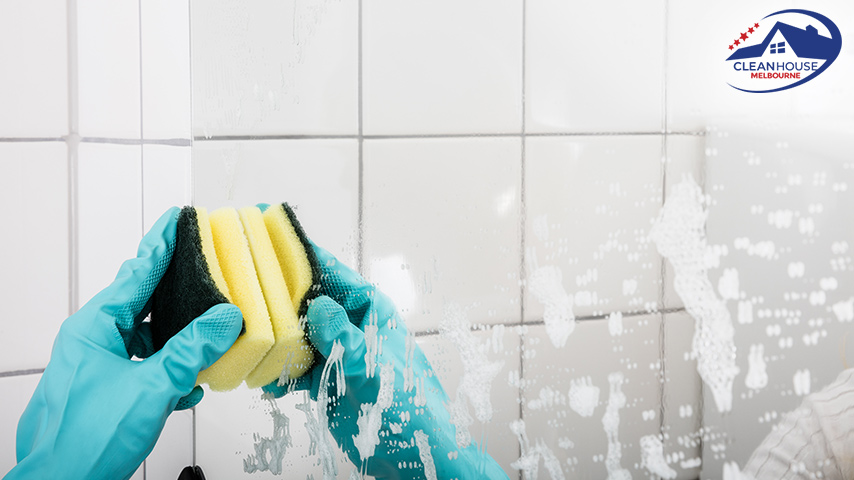 Dry and wet mopping: Be sure to perform dry mopping, which is often referred to as dust mopping before wet mopping. This helps reduce the risk of contaminating mop water before the custodian completes the room cleaning. You can only enjoy both dry and wet mopping if the microfiber mop head was used to complete it. This is because this mopping head type is effective in trapping particles and also can be cleaned easily. Laundering microfiber cloths after use is a good idea. Use disposable microfiber products only in places with a high risk of exposure to COVID-19 or other pathogens.
Dry and wet mopping: Be sure to perform dry mopping, which is often referred to as dust mopping before wet mopping. This helps reduce the risk of contaminating mop water before the custodian completes the room cleaning. You can only enjoy both dry and wet mopping if the microfiber mop head was used to complete it. This is because this mopping head type is effective in trapping particles and also can be cleaned easily. Laundering microfiber cloths after use is a good idea. Use disposable microfiber products only in places with a high risk of exposure to COVID-19 or other pathogens.
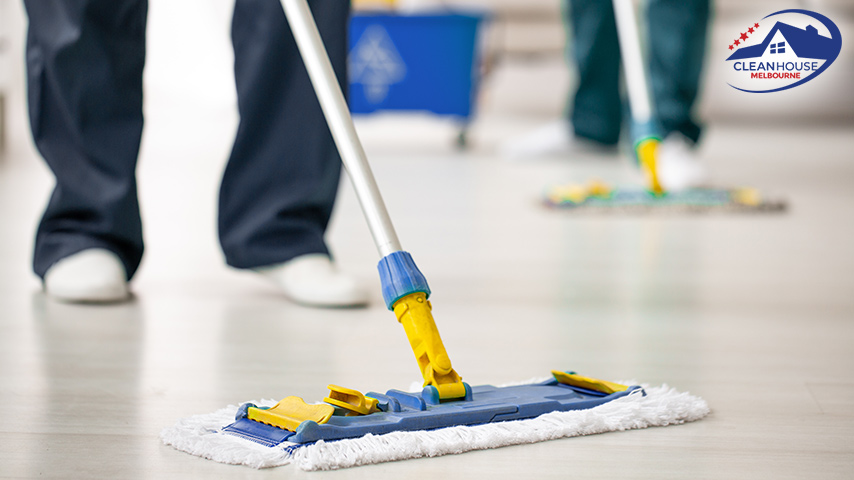
- Disinfecting biohazards: Being exposed to bodily fluids like blood and vomit increases the risk of being infected. Be sure to remove these types of spills and quickly sanitize to prevent the spread of the virus. One of the major ways to quickly get rid of this risk is to use the specialized spill mops. Liquids are turned into a gel by absorbent mop in order to prevent leaks. Disinfect the area and rinse with water immediately you get rid of the hazardous materials and dispose of it in the biohazard bin.
Disposing of waste: Custodians in age care facilities will probably face three types of waste, which include the general, clinical, as well as pharmaceutical. General waste should be accumulated until it can be gathered and disposed of away from the facility. Emptying waste bins regularly will reduce the risk of being exposed to bacteria. Always place clinical waste in biohazard bags and properly disposed of in specially labeled bins. One-use sharps should be kept in sharps containers and removed as recommended by Australian standard AS 4031-1992.
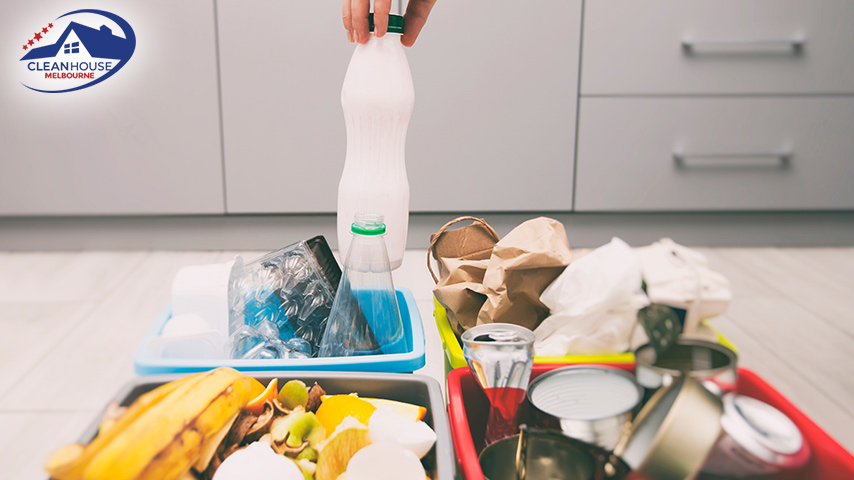
FAQs about Covid-19 Deep Cleaning:
- What is COVID-19 deep cleaning for aged care facilities?
It involves comprehensive disinfection of surfaces and areas to reduce virus transmission risks in aged care settings. - How often should aged care centres undergo deep cleaning?
Regular cleaning is essential, with deep disinfection performed frequently or when exposure is suspected. - What areas are prioritised during a COVID-19 deep clean in aged care?
High-touch surfaces like door handles, handrails, and shared spaces are the main focus. - Why is professional deep cleaning important in aged care facilities?
It ensures thorough sanitisation, minimising infection risks for vulnerable residents. - How does PPE protect cleaners during deep cleaning?
PPE like masks and gloves prevent exposure to harmful pathogens during the cleaning process. - Can regular cleaning practices prevent COVID-19 outbreaks in aged care?
Yes, maintaining high hygiene standards and frequent cleaning help reduce virus spread. - Why is ventilation important during a deep clean?
Proper ventilation disperses airborne contaminants, improving indoor air quality. - How should bathrooms in aged care be disinfected?
Disinfect all surfaces, including taps and handles, daily to prevent contamination. - What training do cleaners need for COVID-19 deep cleaning?
They must be trained in infection control, use of disinfectants, and safety protocols. - How can aged care centres maintain COVID-19 cleaning standards?
Regular audits and adherence to health guidelines ensure compliance and safety.
Conclusion
In case of any query, kindly contact our manager on 0407 094 444. We are available 7 days a week, and we are open for booking, from 7 am daily.


 Email Us
Email Us Whatsapp
Whatsapp
